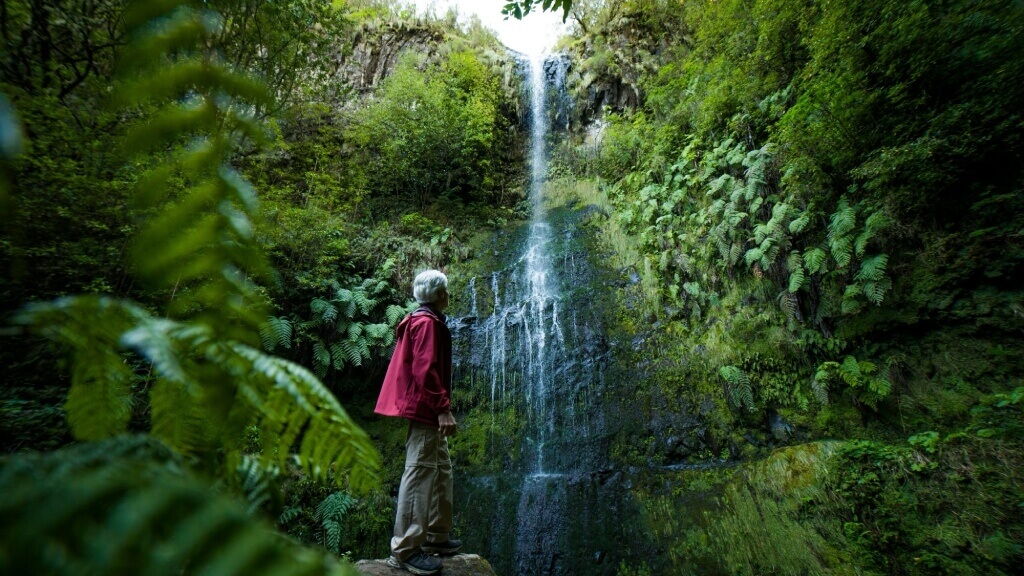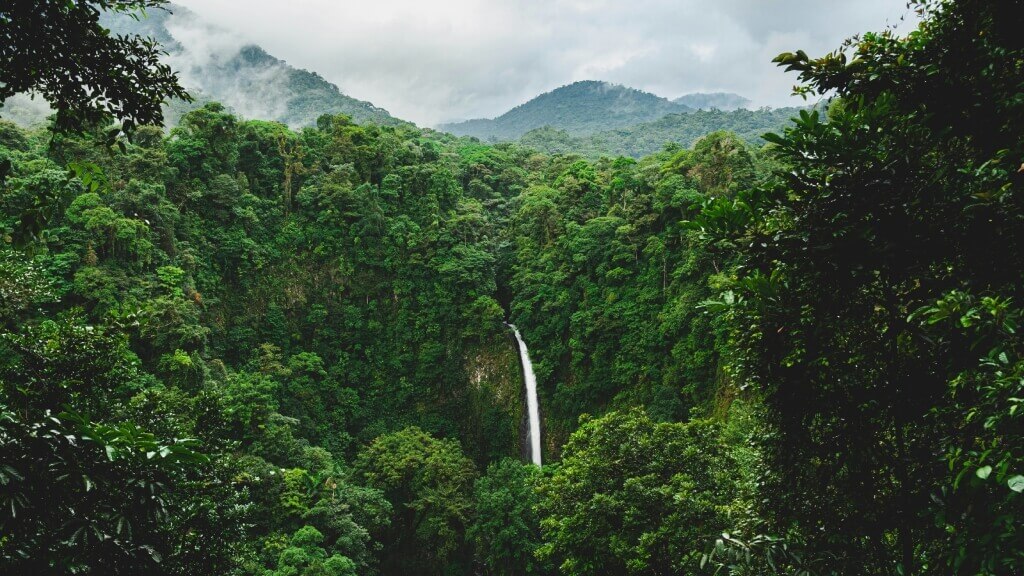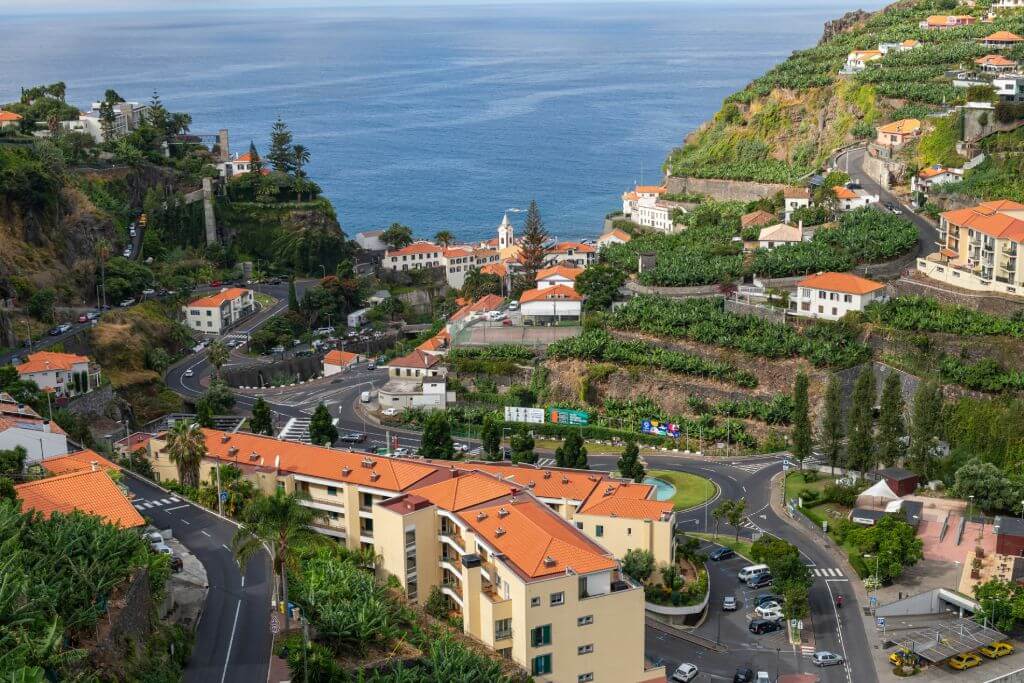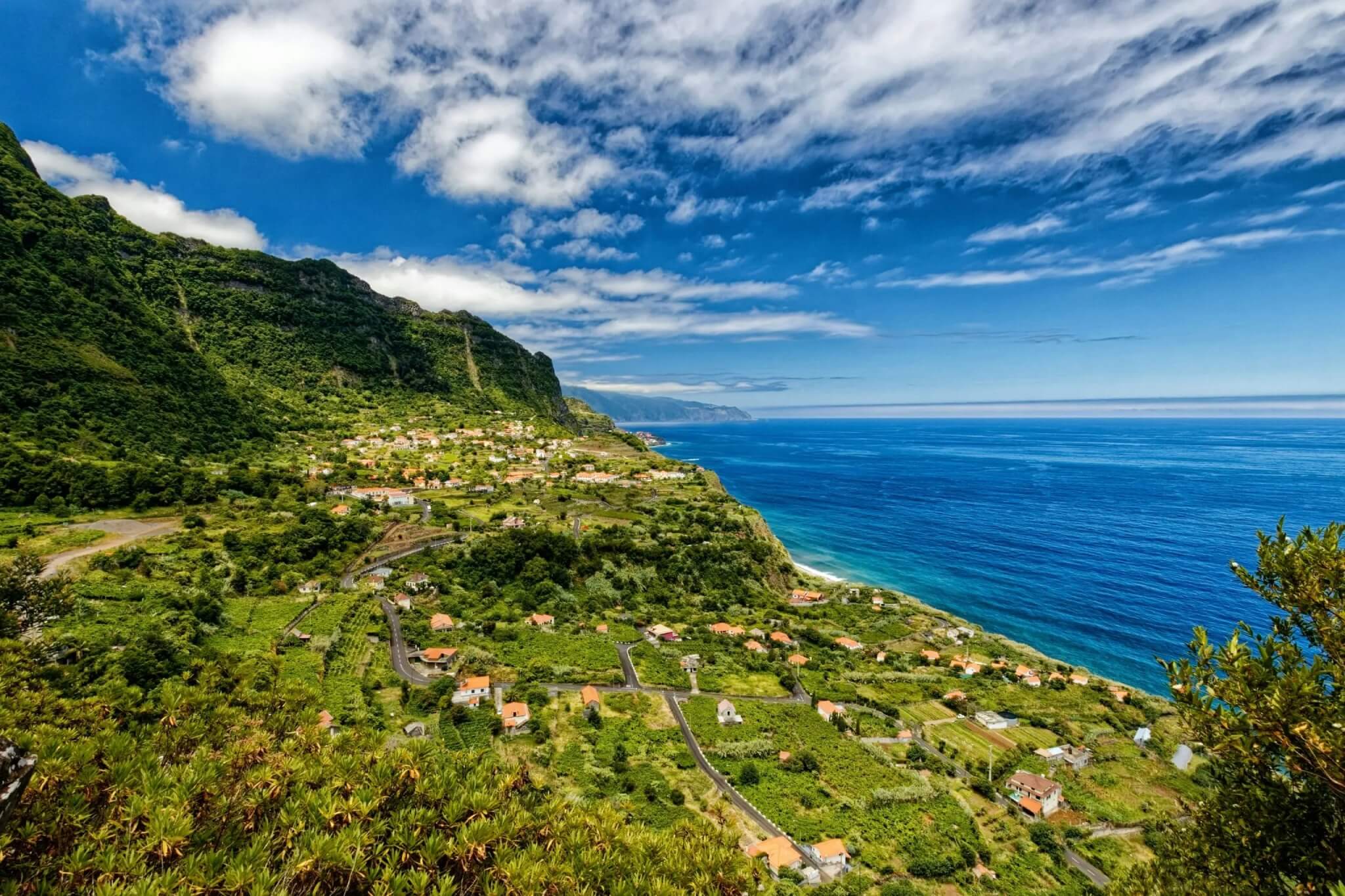Portugal vs Costa Rica. Which country to choose when retiring? More than 70,000 Americans now call Portugal their retirement home. This number keeps growing as Portugal, particularly Madeira Island, becomes a top choice for retirees looking for a high-quality lifestyle.
Recent data shows clear differences in living costs between Costa Rica and Portugal. Costa Rica’s consumer prices without rent are 15% higher than Portugal’s. Grocery shopping costs 35% more in Costa Rica. Portuguese rent prices exceed Costa Rica’s by 31.4%. The local purchasing power in Portugal gives retirees 19.6% more value than in Costa Rica.
Life-changing decisions like retirement location need careful evaluation. Each destination brings its own mix of benefits and challenges. Portuguese residents live longer with an average life expectancy of 82 years, while Costa Ricans average 80 years. Portugal’s healthcare system delivers better outcomes with lower maternal mortality rates. In this piece, we’ll explore what matters most between Madeira Island and Costa Rica as retirement destinations in 2025. This comparison will help you find the perfect spot to spend your golden years.
Lifestyle and Environment: Portugal vs Costa Rica
Retirees face a choice between two paradise-like settings, the tropical rainforests and pristine beaches of Costa Rica or the mild subtropical haven of Madeira Island, Portugal.
Climate Patterns: Subtropical Portugal vs Costa Rica
Madeira’s subtropical climate keeps temperatures steady at around 20°C, even during winter months. You won’t need winter clothes or worry about heating costs throughout the year. Costa Rica’s tropical weather is different from region to region. The coastal areas stay hot and humid, while the central highlands keep cooler temperatures between 70-80°F.
Rain patterns tell an interesting story. Madeira gets much less rain, with just 1.73mm monthly. Costa Rica sees about 8.54mm monthly. Costa Rica has clear wet and dry seasons. September and October bring the most rain because of cyclones and monsoon winds. The weather in Madeira stays steady year-round. This consistency has earned it nicknames like “The Island of Flowers” and “The Everlasting Spring”.
Madeira gets more sunshine with 10.27 hours daily compared to Costa Rica’s 8.88 hours. This means retirees can plan outdoor activities with more certainty.
Natural Beauty and Outdoor Activities
These destinations offer stunning natural landscapes, each with its own character.
Madeira packs an amazing variety into its small island:
- Dramatic coastal cliffs and natural saltwater pools in Porto Moniz
- Lush levada walking trails that lead to waterfalls
- Mountain peaks with trails showing panoramic ocean views
- Fanal Forest with its mystical fog and moss-covered trees

Natural Beauty and Outdoor Activities – Levadas in Madeira Island
Costa Rica showcases incredible biodiversity:
- Home to over 500,000 species – nearly 5% of the world’s biodiversity
- Protected areas cover about 25% of the country
- Ecosystems range from rainforests and cloud forests to mangroves and dry forests
- Wildlife includes sloths, monkeys, and colorful tropical birds

La Fortuna Waterfall – Arenal, Costa Rica
Nature lovers can enjoy hiking, cycling, canyoning, climbing, bird watching, and paragliding in Madeira. Costa Rica offers volcano hikes, cloud forest adventures, wildlife watching, and beach activities.
Cultural Atmosphere and Community Vibe
Life moves at different speeds in these places. Madeira keeps the traditional Portuguese lifestyle but adds its island charm. The relaxed pace helps reduce stress and boost quality of life. Yet the island buzzes with energy, from passionate football culture to spectacular events like one of the world’s biggest New Year’s fireworks displays.
Costa Rica lives by “Pura Vida” (pure life) – a relaxed, carefree mindset that values simplicity, happiness, and love for nature and community. This outlook has helped Costa Rica rank as the world’s happiest country for four straight years in the Happy Planet Index.
Both places welcome expats warmly. Madeira has growing communities from the UK, Europe, and North America. They connect through social media and local services. Tourist areas like Funchal have many English speakers, making it easier for newcomers. Costa Rica has also been a magnet for foreign retirees who love its natural beauty and friendly culture.
Visitor ratings show Madeira scoring 85 out of 100 points, placing 5th among 979 islands. Costa Rica scores 71 out of 100, ranking 74th among 193 countries.
Cost of Living and Daily Expenses
You need to understand the financial impact before moving for retirement. Let’s get into specific costs between Madeira Island and Costa Rica in 2025.
Housing Costs: Rent and Property in Madeira vs Costa Rica
Costa Rica stands out as the cheaper option for renters and buyers. Rental prices in Costa Rica are about 24% lower than in Madeira. A one-bedroom apartment in Madeira’s city center costs around €925 monthly. The same type of rental in Costa Rica averages €699. Three-bedroom apartments in Madeira’s city center average €1,580 monthly. Costa Rica offers similar spaces for €1,283.
Property prices show even bigger differences. Buying property outside city centers in Costa Rica costs 54% less than Madeira. The price per square meter outside Madeira’s center averages €2,617. Similar properties in Costa Rica cost about €1,215. This price gap makes Costa Rica an attractive option for retirees who want to buy homes.
Grocery and Dining Prices Comparison
Costa Rica might be cheaper for housing, but Madeira wins on grocery prices. Groceries in Costa Rica cost 27% more than Madeira. Here’s how basic food items compare:
- Fresh bread costs 96% more in Costa Rica
- Apples are 105% more expensive in Costa Rica
- Bottled water costs 218% more in Costa Rica
- Potatoes cost 74% more in Costa Rica
Restaurant prices tell a similar story. A meal at a budget-friendly restaurant in Madeira costs around €7. A three-course meal for two at a mid-range restaurant averages €50. Madeira’s business districts offer “lunchtime menu” deals for just €9. Costa Rica’s “soda” eateries remain affordable. Trendy restaurants can push daily food costs to about $90 (€83).
Utilities and Internet: Monthly Averages
Utility costs vary between these locations. Basic utilities for an 85m² apartment in Madeira average €115 monthly. This is 52% higher than Costa Rica’s €76. Madeira’s consistent climate needs less air conditioning than tropical Costa Rica.
Internet costs more in Costa Rica. A 60 Mbps connection with unlimited data costs about €46.63 there. Madeira offers the same service for €37.07, making the internet 26% cheaper.
A typical two-person household in Costa Rica spends:
- Electricity: $50-$150 (€46-€138)
- Water: $10-$15 (€9-€14)
- Internet: $30-$50 (€28-€46)
Living costs without rent are 10.4% higher in Costa Rica than in Madeira. The total cost difference becomes smaller when you add rent. Costa Rica ends up being just 0.3% more expensive overall.
Each location offers different advantages. Costa Rica provides cheaper housing but costs more for daily expenses. Madeira has higher housing costs, but daily living remains more affordable.
Healthcare and Safety for Retirees – Portugal vs Costa Rica
Healthcare and safety are top priorities for retirees who want to move abroad. A look at Madeira and Costa Rica shows clear differences in their medical services and personal security.
Healthcare Quality and Access in Madeira
Madeira’s healthcare system works under Portugal’s well-known Serviço Nacional de Saúde (SNS), which SESARAM manages regionally. This system gives great benefits to retirees, as many services become free after age 65. The island has three major public hospitals. Dr. Nélio Mendonça Hospital serves as Funchal’s main facility with 24/7 emergency care. Marmeleiros Hospital handles critical care, and Dr. João de Almada Hospital specializes in geriatric and palliative care.
Retirees must have health insurance to get the popular D7 visa in Madeira. Residents can later choose between public and private care. Many healthcare professionals speak English well, which helps international retirees a lot.
Safety Rankings and Crime Rates
Madeira proves by a lot safer than Costa Rica. Numbeo’s 2025 data shows Portugal’s Crime Index at 32.44 compared to Costa Rica’s 53.71. The Safety Scales stand at 67.56 and 46.29 respectively.
Crime rarely happens in Madeira. Even pickpocketing, which tourists often worry about, seldom occurs. Costa Rica’s homicide rates have jumped to 17.3 per 100,000 in 2023. Property crimes in tourist areas have also become a concern.
Retirees who value healthcare quality and personal safety will find Madeira offers a safer environment with dependable medical services.
Portugal vs Costa Rica: Residency and Taxation Policies

Legal pathways to residency are crucial when planning retirement abroad. Madeira and Costa Rica provide excellent options with different approaches to visas and taxes.
Visa Options: D7 Visa vs Pensionado Program
Retirees heading to Madeira can apply for Portugal’s D7 Visa (also called “passive income visa”). They need to show monthly passive income of at least €870. The visa starts with one-year residency and allows two two-year renewals. Costa Rica’s Pensionado Program requires proof of at least USD 1,000 monthly from a pension or retirement fund. This amount hasn’t changed in years, making it available to many American retirees.
Both programs welcome spouses and dependent children. Costa Rica’s policy is more flexible as it recognizes dependents until age 25 and same-sex marriages.
Ease of Bureaucracy and Long-Term Residency
Costa Rica’s system runs more smoothly. The Pensionado visa takes 6-12 months to process. Permanent residency becomes available after three years. Residents can apply for citizenship after seven years.
Madeira shares mainland Portugal’s bureaucratic challenges. One expat’s experience says it all: “Nearly every encounter with government systems has been a frustrating combination of reluctance to update systems”. Permanent residency takes five years before citizenship applications become possible.
Costa Rica presents fewer administrative barriers for retirees looking for straightforward paths to long-term residency, even though Madeira offers European advantages.
Transportation and Accessibility
Your retirement destination’s transportation system can make or break your daily routine. Madeira and Costa Rica offer two very different approaches to getting around, and this affects your lifestyle more than you might expect.
Public Transport in Portugal vs Costa Rica
Madeira’s public bus system works quite well. Three main companies run the show: Horários do Funchal covers the capital and nearby areas, Rodoeste handles western routes, and SAM takes care of eastern towns. Buses run all day, and you can buy tickets from drivers or at stations.
Life in Costa Rica tells a different story. One local resident puts it straight: “a car is all but essential for living in Costa Rica, even in walkable towns”. People without cars can still get by using taxis and Uber, which are accessible to more people. Another plus is that domestic help costs about USD 600 per month for full-time support.
Road Infrastructure and Driving Conditions
Road quality tells two very different tales in these places. Madeira shows off its modern network of tunnels and highways that serve as main traffic routes. The government has poured money into infrastructure, and this is a big deal as it means that they now have a superhighway system with tunnels from 100m to 3km long.
Costa Rica’s roads can throw you some curveballs. US citizens should note that motor vehicle crashes are the leading cause of death for healthy Americans abroad. The country has made progress with a USD 430.50 million road upgrade around San José that has cut down travel times.
Both places come with their own driving challenges. You need steady nerves for Madeira’s steep, winding roads. Costa Rica keeps you on your toes with motorcycles darting through traffic and roads that sometimes flood during rainy seasons.
International Travel and Airport Access
Cristiano Ronaldo International Airport connects Madeira to the world with direct flights from Europe and seasonal routes from North America. The connection to mainland Portugal is strong, with nine daily flights to Lisbon.
Costa Rica’s international connections work well through air travel. Madeira used to have ferry service to mainland Portugal, but that’s gone now. Both places rely on planes as the practical way in and out.
Madeira comes out ahead for retirees who want reliable public transport, better roads, and easy international connections.
Portugal vs Costa Rica: Conclusion
A deep dive into retirement options in Madeira Island and Costa Rica reveals some striking differences that matter to potential expats in 2025. Both places are amazing alternatives to the usual retirement spots, each with its own unique perks and drawbacks.
Money goes further in Madeira even though housing costs more there. The day-to-day costs like groceries, eating out, and utilities are way cheaper than Costa Rica. Fresh bread costs 96% less, and bottled water is an amazing 218% cheaper. People’s money has 19.6% more buying power in Madeira, which means retirement savings stretch much further.
The safety difference between these places is huge. Madeira scores an impressive 90/100 while Costa Rica lags behind at 47/100. This shows up in real life – Costa Rica struggles with rising theft and homicide rates, while Madeira rarely sees even small crimes.
Healthcare is another area where Madeira shines, especially for retirees. The island offers specialized care for older adults, free services after 65, and access to Portugal’s excellent national health system. Costa Rica ranks 36th worldwide in healthcare, but Madeira offers better support for age-related health issues.
The weather brings a surprising advantage to Madeira. Costa Rica’s tropical climate is famous, but Madeira wins with steady temperatures and less rain (1.73mm vs 8.54mm monthly). More sunshine hours (10.27 vs 8.88 daily) mean more time to enjoy outdoor activities without dealing with extreme seasons.
Getting around is much easier in Madeira with its modern highways, tunnels, and reliable public transport. Costa Rica’s rough roads, limited public transit, and the need to own a car can be real headaches for retirees who want hassle-free travel.
The path to residency differs through Portugal’s D7 visa and Costa Rica’s Pensionado Program. Costa Rica keeps things simpler, but Portugal’s EU membership opens doors across Europe, even with upcoming changes to the NHR tax program.
Costa Rica remains attractive with cheaper housing and tax benefits, but Madeira Island stands out as the better choice for most retirees looking for the complete package. This enchanting island combines European charm, exceptional safety, dependable healthcare, and breathtaking scenery—all wrapped in perfect weather. More than 70,000 Americans have already chosen Portugal for retirement, with Madeira being the jewel in Portugal’s retirement crown. What’s your choice when it comes to Portugal vs Costa Rica?
The founding of Madeira Corporate Services dates back to 1996. MCS started as a corporate service provider in the Madeira International Business Center and rapidly became a leading management company… Read more




